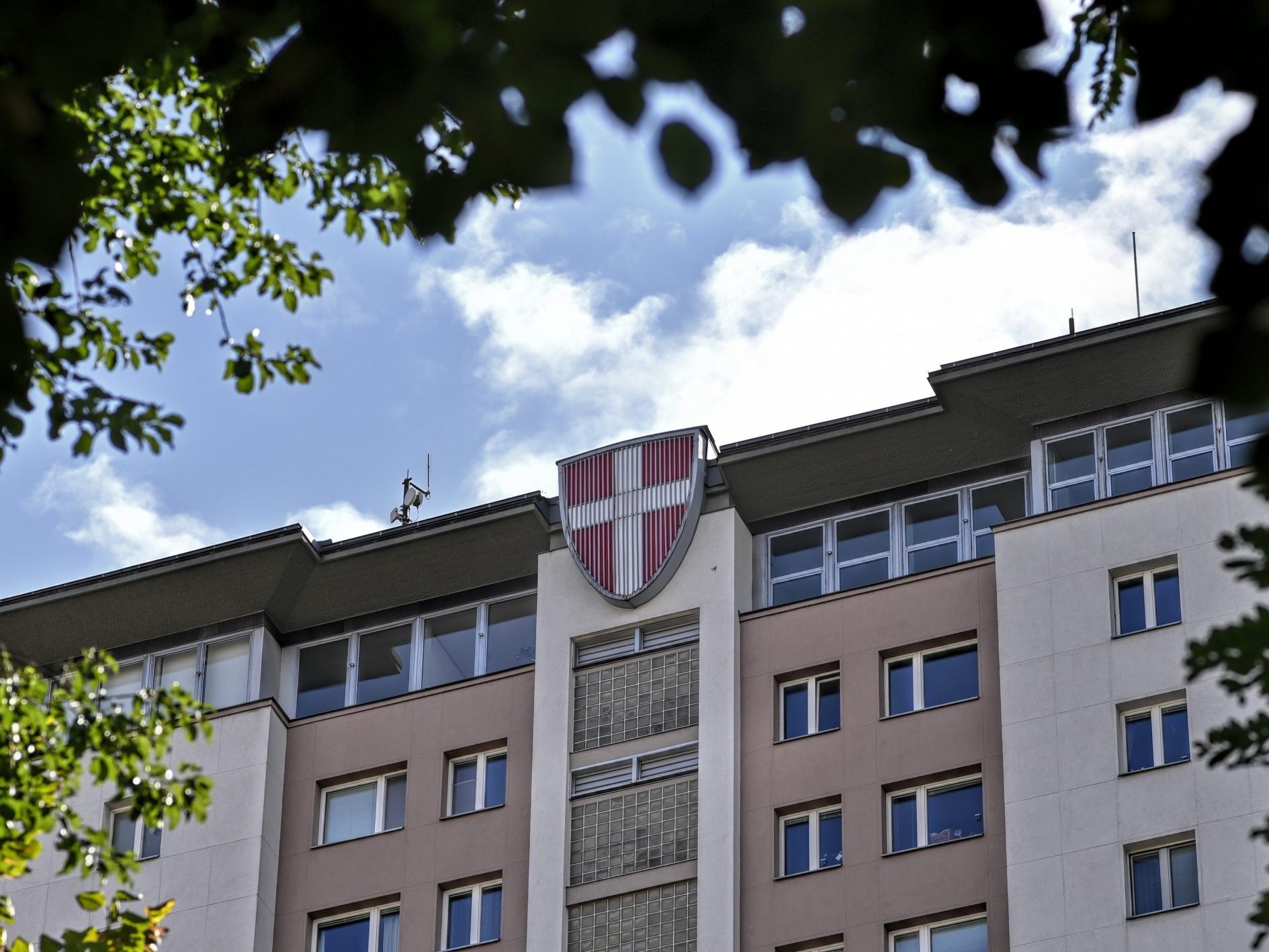FPÖ Criticizes Condition of Municipal Buildings Before Vienna Election

The city's housing policy is also a topic in the ongoing election campaign for the Vienna election taking place in a week and a half: Both the Freedom Party and the Greens identified numerous grievances in the city's housing policy on Wednesday. While the FPÖ mainly criticizes significant structural deficiencies in Vienna's municipal housing, the Greens presented a new model for a vacancy tax on Wednesday due to the estimated 80,000 vacant apartments.
It would be clearly evident that SPÖ Mayor Michael Ludwig "slept through" the renovation of municipal housing during his time as housing councilor, said FPÖ top candidate Dominik Nepp at a press conference. This has resulted in a renovation backlog of up to 10 billion euros. Numerous buildings are at risk of collapse, unaddressed water damage leads to mold, and broken windows "make a dignified life partially impossible," Nepp explained. He cited buildings on Handelskai or Baumgartenstraße as concrete examples. At the same time, buildings are being constructed only for those entitled to asylum and those with subsidiary protection. The municipal housing residents do not understand this, Nepp is sure.
Renovation Backlog of 10 Billion Euros
The Court of Audit also found that 75 percent of Vienna's municipal apartments require renovation, resulting in a renovation backlog of 10 billion euros. "Mayor Ludwig is also so brazen as to increase rents several times in recent years," criticized the Vienna FPÖ leader. What is needed now is a comprehensive expansion of municipal housing and an adjustment to the housing cooperatives. These would lower their rents to the base amount once the construction project is fully financed, which would reduce rental costs in municipal housing by up to 40 percent, Nepp said.
Furthermore, housing assistance should be linked to citizenship, and municipal housing should only be allocated to Austrians. Subsidized apartments should also only go to people with Austrian citizenship and those "demonstrably integrated."
Municipal Housing: FPÖ and Greens Criticize Red Housing Policy Before Vienna Election
FPÖ federal construction spokesperson Michael Oberlechner pointed out that not only Wiener Wohnen is responsible for the current situation, but also Sozialbau AG. Under the former general director Josef Ostermayer (SPÖ), there were investment losses of up to 70 million euros. With these funds, 1,500 new social apartments could have been financed, so social housing is "completely out of control," Oberlechner stated. A SPÖ-affiliated association, namely the Association of Vienna Workers' Homes, is also involved in this social housing network through "complex structures." "You can tell the red heart beats for their own comrades but not for the people," said the federal construction spokesperson. The silence of the ÖVP and NEOS on these grievances is also noticeable, Oberlechner noted.
The Vienna SPÖ immediately rejected the blue accusations. "Vienna has stood for affordable and quality housing for over a century. The recent statements by the FPÖ once again lack any factual basis and only serve political agitation," emphasized SPÖ state party secretary Barbara Novak. Since 2021, among other things, one billion euros have been invested in the renovation and construction of apartments. Novak pointed out that with the current "Housing Offensive 2024plus," around 22,000 apartments for up to 45,000 people are currently being built. "While we are building, the FPÖ sticks to empty slogans," the red campaign manager noted.
Greens Want to Combat Vacancy in Vienna
The Green Party's top candidate Judith Pühringer and housing spokesperson Georg Prack want to tackle vacant apartments in Vienna with a new model of vacancy tax. It is estimated that there are around 80,000 of these in Vienna, but an exact figure is not possible as they are "not recorded and not taxed," Prack emphasized at a press conference. Vienna must "consistently take action against speculative vacancies," said Pühringer.
The SPÖ is resting on its laurels here and squandering the legacy of affordable housing, according to the Green Party's top candidate. The model for the vacancy tax presented today is progressive. Therefore, the taxes would increase with the duration of the vacancy. The calculation of the tax would be based on the reference interest rate, which is currently 6.67 euros.
In the first year, two-thirds of the reference interest rate per square meter per month should be incurred. In the second year, it would be the full rate, and in the third year, double the rate. For a 75 square meter apartment, this would ultimately amount to just over 12,000 euros per year. This is intended to increase the pressure on landlords to bring the apartments back to the market, it was said.
Prack also emphasized that comprehensive exceptions are planned. Only speculative vacancies should be prevented. Thus, the tax would only apply to apartments that have been vacant for more than six months. Secondary residences or vacancies due to renovation, inheritance proceedings, or care would be exempt from a tax, according to the Green Party's housing spokesperson.
To support owners in renting out, the Greens want to set up a municipal housing platform. This should offer an "all-inclusive package" and take care of everything from tenant search to lease creation to rent processing. Regarding the rent, the platform should refer to the reference rent according to the Tenancy Law to create affordable housing.
KPÖ Also Presented Housing Policy Positions
The KPÖ also presented its housing policy positions on Wednesday. The program, developed by Vienna housing researcher Wolfgang Förster, calls for a comprehensive municipal housing program with at least 5,000 new municipal apartments annually. This should be financed by a housing levy from investors of privately financed buildings and a land levy on undeveloped designated building land. Additionally, the KPÖ demands that landlords must prove the habitability of the house every three years in the form of a "housing sticker." Uninhabitable houses should be "socialized" and made usable again. In the long term, the KPÖ aims for a "socialization of housing" altogether.
(APA/Red)
This article has been automatically translated, read the original article here.





